Toyota Prius 2008 News
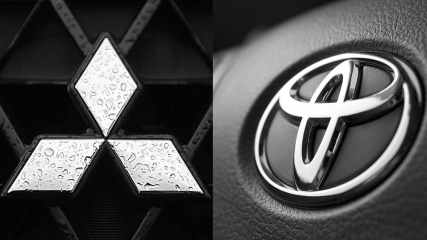
800,000 cars recalled in two days
Read the article
By Joshua Dowling · 30 Jun 2016
Cars are either being built worse -- or companies are getting better at detecting faults.a range of models made over the last 10 years replacing potentially deadly Takata airbags in 1.3 million cars in Australia. a second, airbag-related recall for the Priusreplacing potentially deadly Takata airbags in 1.3 million cars in Australia
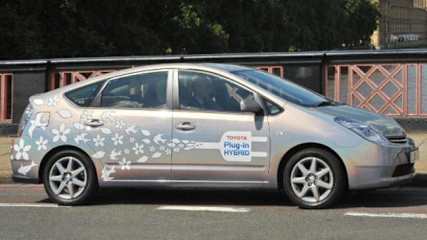
Ban on diesel and non-hybrid petrol cars proposed
Read the article
By Viknesh Vijayenthiran · 13 Aug 2013
One of Great Britain's major political parties says it wants to see diesel-powered and non-hybrid petrol-powered passenger cars banned from British roads by 2040.
The Liberal Democrats, part of the UK's current coalition government, said it would even be willing to accelerate the timing of the ban, if the availability and affordability of fuel-sipping hybrids and battery-powered electrics matched those of regular petrol and diesel cars.
The proposal, which excludes vehicles used for freight purposes, was published in a paper submitted by the political party titled Green Growth And Green Jobs -Transition To A Zero Carbon Britain. It will be voted on by party members at an upcoming conference and could end up as official party policy if approved, The Telegraph reports.
Understandably, there has been a lot of backlash to the proposal in the UK, especially because it makes no provisions for owners of classic cars and there is no mention of solutions for charging infrastructure and other requirements for electrified cars. “To set an arbitrary deadline like this is completely unrealistic,” one opposing politician said.
The party also proposed a new road-pricing system for congested areas. This would replace the current flat road tax system, with vehicle owners paying a fee calculated on how many miles they drive, whether those miles are driven during peak or off-peak hours, and which road types are used -- as well as their car’s CO2 rating.
www.motorauthority.com
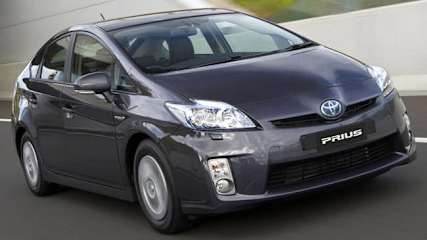
Toyota recalls more than 1600 Prius hybrids
Read the article
By Malcolm Flynn · 08 Jun 2013
Toyota has issued a recall of the 2008-09 ZW30 third-generation Prius hybrid. The recall affects some 1,652 Australian models, and relates to a potentially faulty Brake Booster Pump Assembly --a key element of the car’s braking system.The potential fault can result in a fatigue crack to the accumulator within the system, which could cause nitrogen gas to leak and result in a spongy or longer travel to the brake pedal. This could in turn increase stopping distances and the risk of collision.The recall includes all Prius models within the VIN number range: JTDKN36U# 01000031 – 01092008 and JTDKN36U# 05000003 – 05076028, produced between October 2008 and October 2009.Toyota will alert owners of the recall via mail, advising they visit their Toyota dealer for a free inspection of the relevant system. If necessary, the assembly will be replaced free of charge.
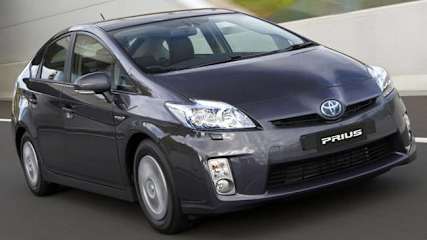
Toyota recalls 242,000 Prius and Lexus cars
Read the article
By CarsGuide team · 06 Jun 2013
Toyota has issued a global recall on 242,000 cars around the world, affecting the Toyota Prius and the Lexus HS 250h. The recall will include 1650 Australian Toyota Prius built between October 2008 and October 2009, however the Lexus model is not sold in Australia.
The affected vehicles are fitted with a brake pressure accumulator that may develop a fatigue crack on an internal part due to vibration.
The most likely outcome would be a loss of braking pressure, although Toyota hasn’t detailed what would happen if the part in question did develop a crack.
The fix will involve inspection of the brake booster pump assembly to see if it is equipped with one of the suspect accumulators. If so, the dealer will replace the brake booster pump assembly with an improved one.
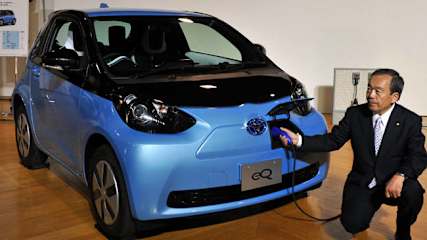
Toyota pushes hybrid path
Read the article
By Chester Dawson · 26 Sep 2012
Toyota has put its weight behind hybrids, disclosing plans to roll out 21 new or redesigned petrol-electric powered vehicles by the end of 2015 and playing down the near-term outlook for other alternative-fuel technologies such as all-electric cars.
The Japanese carmaker predicted its sales of hybrid models worldwide will likely top 1 million this year and to 2015. While the rollout and forecast signal Toyota's confidence in its hybrid strategy, the company acknowledges costs must still be cut further to increase profitability and spur sales. "Profits from conventional (petrol) powered cars are still higher, so we need to reduce hybrid costs more in order to promote their diffusion,'' said Toyota's vice-chairman and R&D head, Takeshi Uchiyamada.
Hybrids are becoming more mainstream in Japan. Toyota's sales of the petrol-electric vehicles last year reached 310,000, or 26 per cent of sales. But they remain a niche in other key markets such as the US. Last year, Toyota sold 178,587 hybrid models in the US, just a fraction of the 1.64 million vehicles it sold there overall in 2011.
The Japanese carmaker has high hopes for its "plug-in'' hybrid, which can be refuelled at a petrol station or by plugging in to a standard electrical outlet. Cumulative sales of its Prius PHV, which made its debut this year, reached 15,600 last month, including 8400 in Japan, 6100 in the US and 1100 in Europe. At the same, time Toyota plans to sell just 100 models of its newest electric vehicle, a subcompact EV called eQ.
That contrasts with rival Nissan, which has bet big on EVs with its Leaf compact. Mr Uchiyamada said Toyota was moving ahead with plans to localise production in China of hybrid engines by 2015 and hoped to follow suit in the US, but said the carmaker had made no decision yet. "We are looking into it, but we haven't reached a formal decision or made any specific plans,'' Mr Uchiyamada said.
This year, the company announced plans to shift production of its Highlander SUV hybrid to a plant in Indiana, in the US, but the core engine components -- such as motors, batteries and converters -- will continue to be exported from Japan. Beyond the main thrust into hybrids, Japan's No 1 carmaker also laid out its strategy in other fields of environmental technology, such as all-electric and fuel cell-powered vehicles.
Toyota is tiptoeing into EVs with its first sales this year and it won't begin commercial sales of a fuel-cell vehicle for at least three years. Mr Uchiyamada indicated that proprietary technology made FCVs hold more promise than EVs. "Anybody can make EVs but that is not the case for FCVs,'' he said. ``So we see a lot more potential in FCVs.''
Toyota will begin sales of a compact SUV with an electric engine made by Tesla. The company also will introduce its eQ to clients such as local governments in the US and Japan in December and China some time next year, but sales of the $US46,146 ($44,260) vehicle will be limited to 100 units.
The carmaker said it would launch a fuel cell-powered sedan "around 2015'' in Japan, North America and Europe, and collaborate with subsidiary Hino to debut a fuel-cell bus in 2016. It projected sales of FCVs in the "tens of thousands'' by the 2020s.
Separately, Panasonic said it would provide Toyota with lithium-ion batteries for the eQ. Panasonic has a track record with batteries used in eco-friendly vehicles, demand for which is growing amid environmental concerns and higher oil prices. Panasonic has supplied lithium-ion batteries for Toyota's Prius Plug-in and Prius Alpha hybrids.

Toyota to make hydrogen push
Read the article
By Paul Gover · 25 Jun 2012
Toyota says it will the first carmaker to sell a hydrogen-powered car in Australia, using an onboard fuel cell to generate electricity, perhaps as soon as 2016.It claims the newcomer will be a bigger breakthrough than the first Prius, although its plans are dependent on developing a workable network of refuelling stations that can supply the hydrogen for the vehicle.Toyota is well advanced with its fuel cell development work and I have driven an impressive Kluger in California that is refuelled from the world's first dedicated high-pressure hydrogen refuelling station. It sounds and responds like an electric car, and Toyota says its giant hydrogen tanks and prototype fuel cell 'stack' will be shrunken considerably by the time it is ready with its first production car."We're aiming for a production fuel cell car in the USA in 2015. It's a car, not an SUV," says Greg Gardner, of Toyota Australia. "It will be an all-new model. Something like the Prius, at least initially. "As the environmental leader in Australia, hat's definitely a target for us. Yes, definitely, we want to be first."Toyota has shown several hydrogen concept cars including a four-door sedan that will have the space to package the new-era powerplant, which is similar to the one in the landmark Honda Clarity. The Clarity began as a concept car and is now being leased in small numbers in Japan and the USA, but is not regarded as a genuine production model.Toyota says its car will be sold, not leased, and will be a genuine production car and not a science experiment. Even so, Gardner says it will take time to get established. "It will be produced in the tens of thousands by 2020.It won't be like the Prius, which will hit one million sales next year," he says. But he promises a car that satisfies the needs of regular consumers, not just eco warriors, with the practicality of a Camry. "The good thing about hydrogen is that you only have to find space for the cell and tanks. It's about packaging," Gardner says."It can be applied to any vehicle. So in the future you could have a gasoline car, an electric hybrid and and hydrogen drive in the same vehicle. "The more that you do, and the longer you do it, the better the price will become. It's about the economies of scale." But he admits there is an elephant in the room, with no sign of a workable hydrogen fuel network any time soon in Australia."Refueling is the biggest challenge. But this is he future we're talking about," he says. "If we build it, they will come. When we introduce it, we'll have to work collaboratively with the liquid energy distribution companies and governments to make it work. It's a massive task."

County forgot they bought a fleet of cars
Read the article
By Karla Pincott · 30 Apr 2012
But it takes a government office to forget where they parked a fleet of 293 brand new cars.
Let alone that they bought them in the first place. The Miami-Dade county office in Florida, US, has ‘rediscovered’ a fleet of Toyota Prius hybrids and other vehicles that have sat unused since being purchased five to six years ago.
The $4 million worth of undriven vehicles only came to light after a story appeared in the Florida Spanish-language newspaper, El Nuevo Herald.
County commissioner Javier Souto is cited as saying that in 2010 a county employee had been told hundreds of new cars were sitting unused in a Miami-Dade carpark. Mr Souto says questions about the fleet had been put to the office of then - mayor Carlos Alvarez - who lost office last year amid controversy over county funding uses.
The county’s director of corporate services, Lester Sola, has reportedly confirmed the cars were being quickly put into service. He has also stated the vehicles are still covered by warranty.
However, warranties can be voided when a vehicle has been abused. And leaving one sitting unused - and unserviced - for several years could well wipe out any manufacturer guarantees.
Get all the latest news and reviews in your newspaper's Carsguide section.
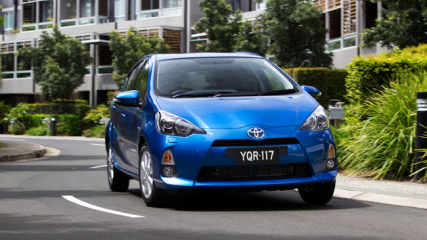
Gen-Y will drive hybrid boom
Read the article
By Karla Pincott · 29 Mar 2012
The carmaker’s Australian divisional manager Peter McGregor says Gen-Y are expected to account for 40 per cent of new car sales within 10 years
And to the brand that makes the Prius – and the baby Prius C launched this week – that means hybrid sales.
Acknowledging that sales of the Prius have steadily dropped from 3400 in 2008 to just 822 last year, McGregor said there would be a turnaround from Australian baby-boomers’ five million Gen-Y progeny who are “now adults and have substantial economic clout”.
“Our local research has shown that, apart from the innovators and early adopters who embrace hybrids, it is younger people – particularly Gen Y – who really understand hybrid technology and appreciate its benefits,” McGregor says.
“They tend to view hybrid technology as proven and reliable – and they are generally willing to pay extra to get the fuel-saving benefits.”
McGregor cites annual surveys conducted overseas by Deloitte that found the 59 per cent Gen Y preference for the fuel cost savings of hybrids could bring a tipping point for mass sales.
“Gen Y could be the generation that leads us away from traditional petrol-powered cars,” he says. “They are looking for cars that are more economical to operate than traditional petrol-powered vehicles… until now, they just haven’t been able to afford them.”
Prius chief engineer Satoshi Ogiso believes the tech-savvy thirty-somethings will find what they’re looking for in the Prius C. “We think they are looking for something small and nimble for urban driving and also a little more affordable,” he says.
Ogiso says Gen-Y is looking for a combination of technology, fun, economy and advanced safety that “matches who they are”.
And when will the change come? Any minute now, McGregor predicts, pointing to the $23,990 Prius C and the seven-seater Prius V due in May, which will add more troops to the hybrid ground currently held by the revised Prius and the new Camry Hybrid.
“I think we will realistically see hybrid volume increase this year. It has been a little longer coming than what we originally hoped for and what we had anticipated.“I think one of the reasons hybrid has not fulfilled its destiny is that we have almost been a lone voice in the market with hybrid technology.
“(But) we’re pretty much on that tipping point.”
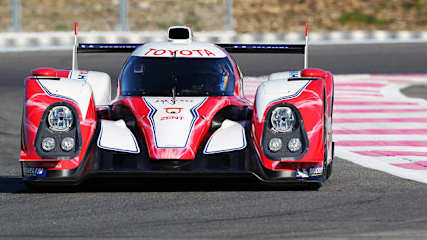
Toyota Prius to take on Le Mans
Read the article
By Paul Gover · 08 Feb 2012
The new hybrid hero is not technically part of the Prius family, but Toyota is using its TS 030 as a 320km/h labratory-on-wheels and a way to break down barriers against future cars.
Toyota is not planning to win in France this year but does intend to lay the foundations for future success at Le Mans with a two-car coupe entry in full factory colours.
But it will not be the only hybrid contender in June, as Audi has just confirmed plans to race a pair of diesel-electric versions of its latest R18 in a four-car effort at Le Mans. It is believed to use a flywheel, similar to the Williams F1 system already used by Porsche in a racing 911, for energy storage.
The new Toyota 030 is also a full hybrid that combines a 3.4-litre V8 racing engine with a hybrid energy storage system to boost power to electric motors at the wheels. The biggest difference between the road and race cars is the storage system - a Prius uses a battery pack and the Toyota racer uses a high-tech capacitor that has greater storage potential and the ability to release energy in a more concerted burst.
"The first year is a testing year, but at the same time, the whole team, including myself, has massive motivation. Even if it is the first year, we are there to win the race," says Kazuki Nakajima, a former Williams F1 driver who heads the driver lineup for Le Mans.
Toyota has fielded cars many times at Le Mans, firstly with the TS 010 and 020 that made the podium in the 1990s, then the GT-One built in Germany by the team that would eventually take Toyota - unsuccessfully - into Formula One.
The 030 hybrid has already been tested extensively ahead of Le Mans but Toyota says it is still assessing the potential drive system.
Race rules mean a maximum of 500 kiloJoules of energy can be recovered under braking - although the capacity of the Toyota system is double that amount - and it can be fed to either the front or rear wheels.
rand Prix cars use their kinetic energy recovery systems to boost drive to the rear wheels but Porsche has turned its 911 into an all-wheel drive racer with electric power to the front wheels, something also being trialled by Toyota.
The Toyota 030 hybrid races for the first time at Spa in Belgium in May and, apart from Nakajima, the six-driver lineup also includes former F1 racer Alex Wurz.

Toyota Yaris Hybrid announced
Read the article
By Karla Pincott · 16 Jan 2012
Cheap and green is the name of the game, with the Yaris aiming to deliver the least expensive hybrid in the market, with the best fuel economy and emissions figures in the light car segment.
Rather than relying on the 1.8-litre engine from the Prius, Toyota has downsized to a 1.5-litre and a smaller electric motor, inverter and battery pack, saving about 20 per cent in weight and avoiding having to cannibalise the Yaris cabin and 286-litre luggage space.
The new system is tipped to deliver a maximum of 74kW with fuel economy nearing 3L/100km and emissions as low as 80g/km. This brings it under the Prius’ 3.4L/100km and 89g/km, and also makes it a contender against new ultra-light city cars such as the Volkswagen Up.
Initially slated for Europe, the Yaris will make its international debut at Geneva Motor Show in March and hit the showrooms over there by May. And it will eventually hit our shores, but don’t expect to see it here for some years, Toyota Australia says.
“For the Australian market we have the Prius C arriving towards the end of first quarter this year – within a couple of months -- and that will take the spot of the Yaris Hybrid here,” a Toyota spokesman says.
“That’s for the interim. (TMC boss) Akio Toyoda’s vision is that every Toyota model will have a hybrid variant by 2020, so by then we will have one.”
As the first full hybrid model in the B segment in Europe, Toyota’s newcomer will hope to build on the strength of Yaris being their top seller there – and snare younger buyers that can move up the model line as they mature.




